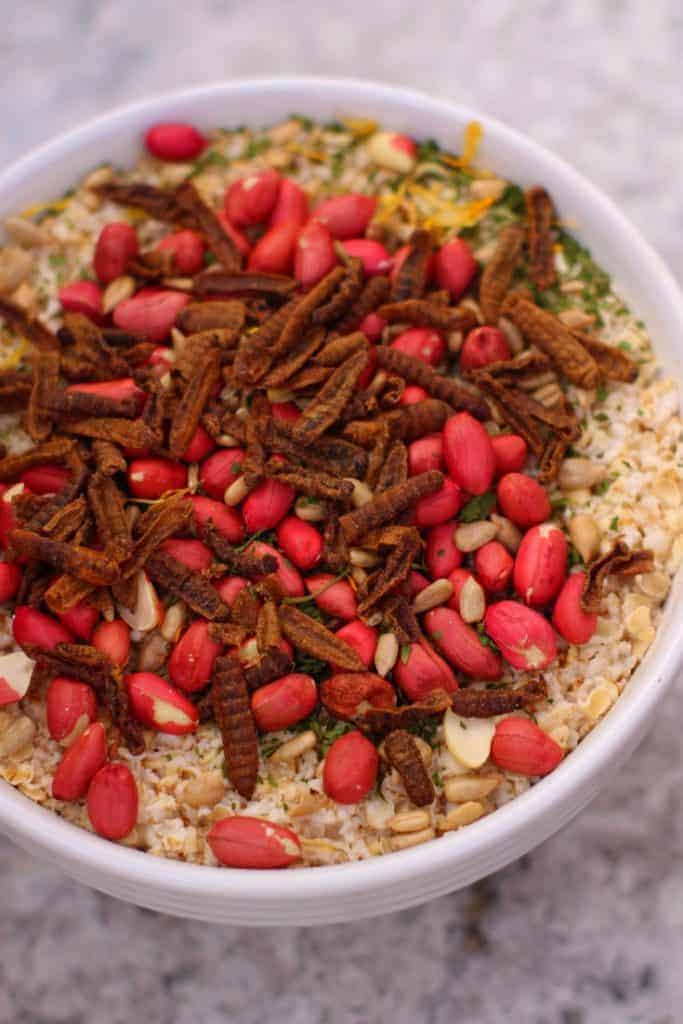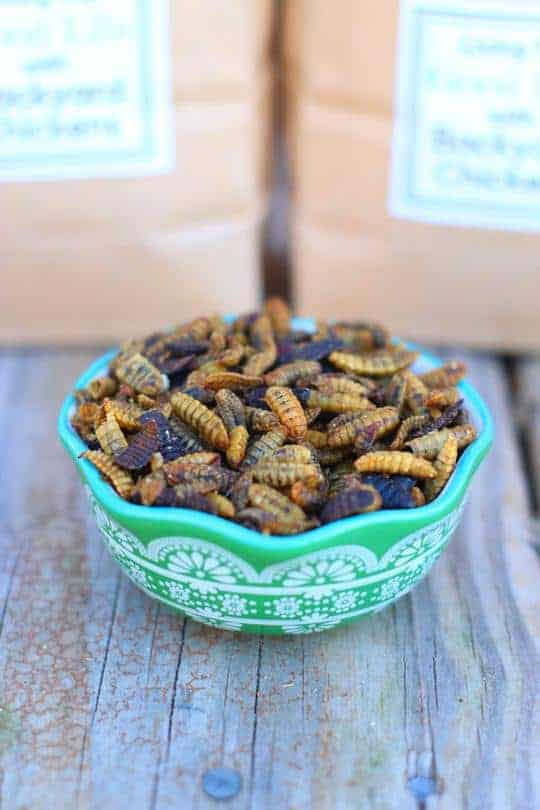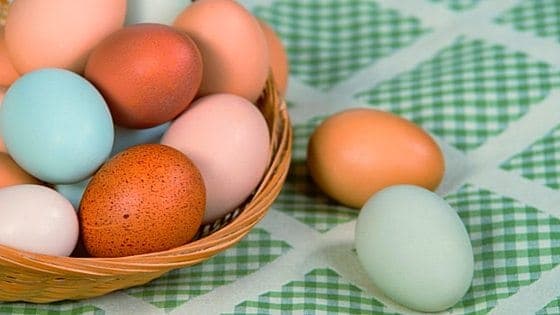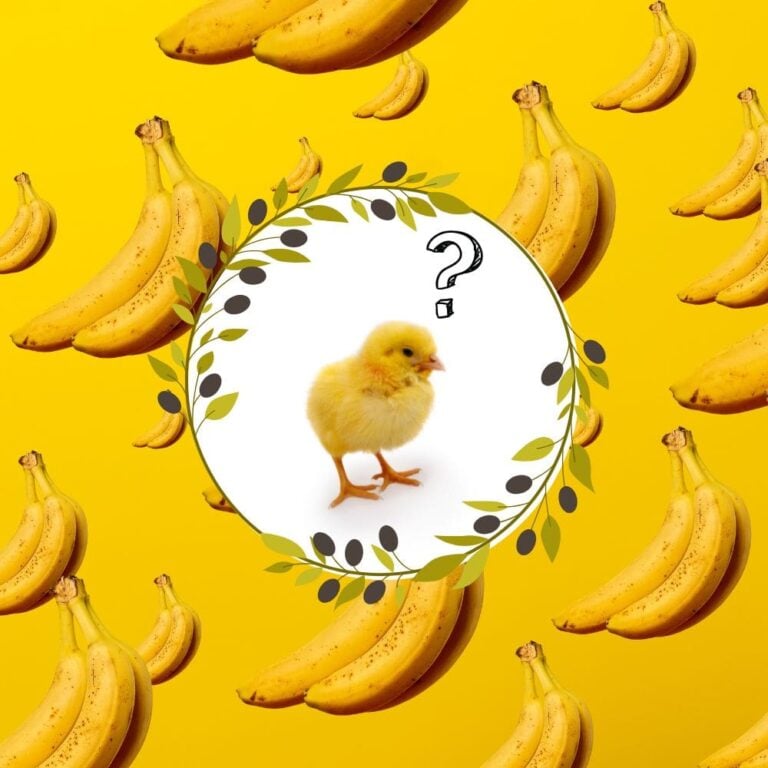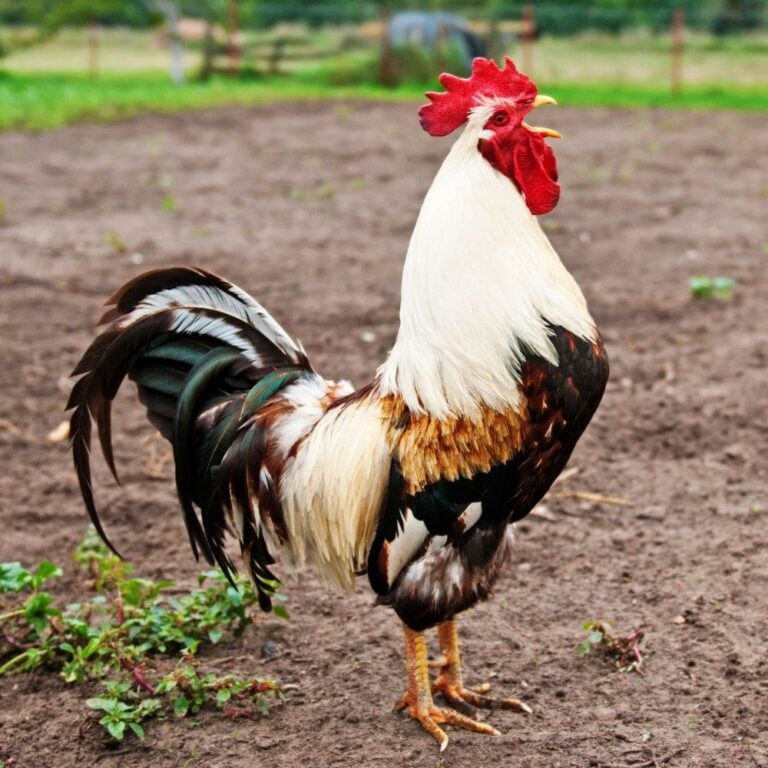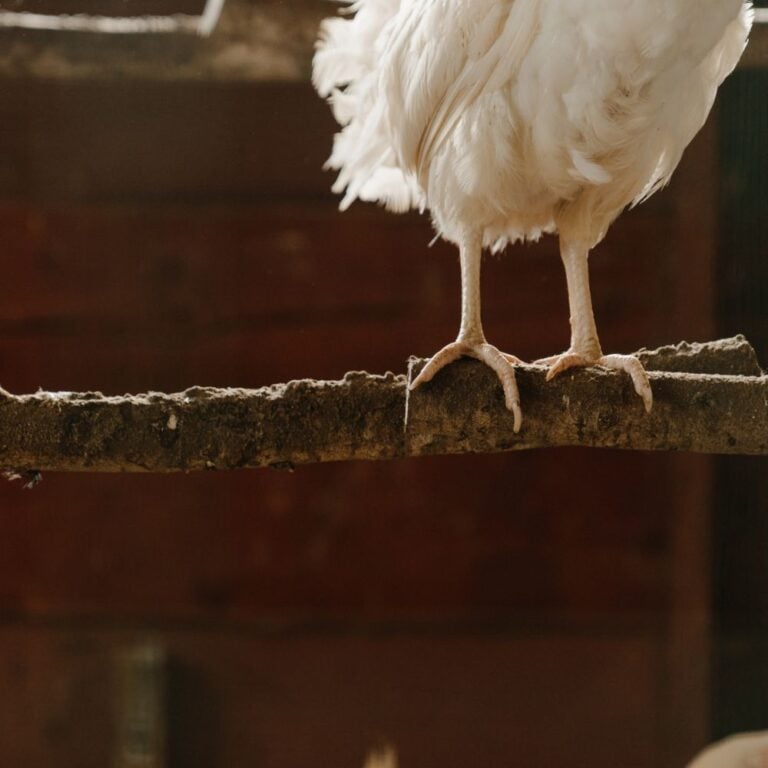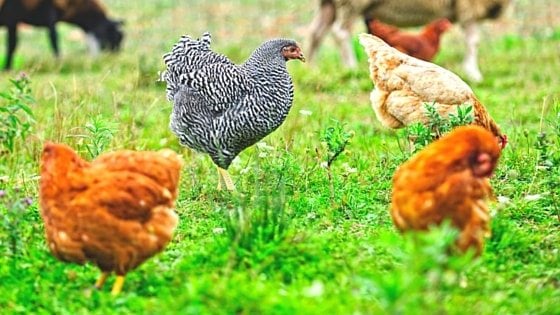Black soldier fly larvae superfood for chickens are like candy for your backyard flock. In other words, hens LOOOOOVVEEEE them.
Many times, we’ve gone out to our coop to give the flock a surprise, and within mere moments, they’ve snatched all the black soldier fly larvae out of our hands!
The nutritional content of these insects means you can make them an essential part of your chicken’s diet – and they might even help your flock grow better and lay better eggs!
Black soldier fly larvae are full of protein content, fat, and essential vitamins and minerals. As you know, protein is essential to raising healthy hens, and for feather growth – especially since feathers are mostly protein.
A diet high in protein is also essential for excellent egg laying – so if your flock’s diet is low in protein, then they might lay abnormal eggs or possibly something else (like a lash egg). It helps that hens really, really love these insects – mine go nuts for them, and I’m sure yours will also!
In this article, I’m going to show you why black soldier fly larvae are a great snack for your chickens and how you can get started raising them yourself!
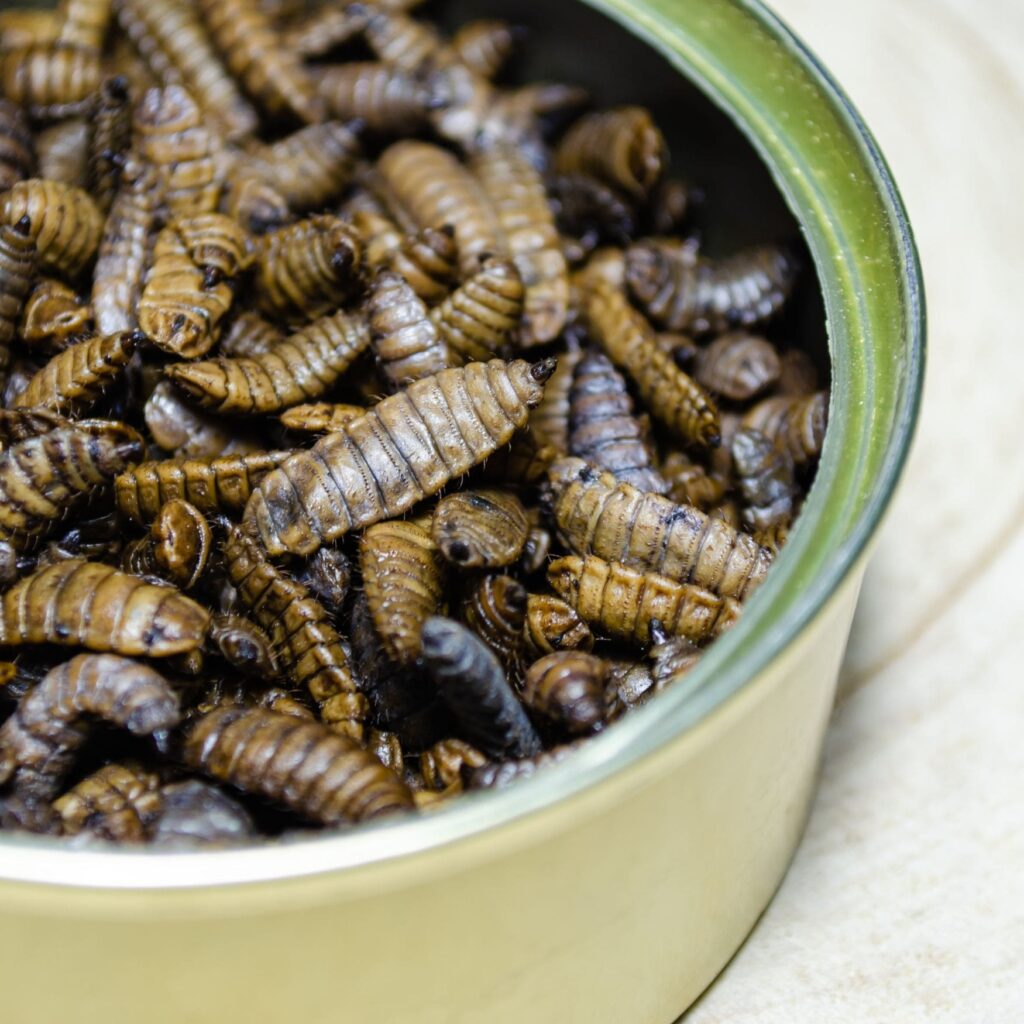
Table of Contents (Quickly Jump To Information)
What are Black Soldier Fly Larvae (BSFL)?
The black soldier fly (Hermetia illucens) is a member of the Stratiomyidae family, and just about anyone in the United States can raise them for their flock.
For most people insects are considered pests, but the black soldier fly larvae shouldn’t be! In nature, they play an active role in the ecosystem by converting wastes (such as discarded food) into valuable resources.
Other advantages of Black Soldier Fly Larvae are:
- Dry to touch (not slimy)
- Not smelly
- They don’t sting humans
- Safe and are not carriers of diseases
Black Soldier Fly Larvae & Adult Life Cycle
This insect has a 45-day life cycle that is divided into 4 stages:
Adult Stage – An adult Black Soldier Fly has a lifespan of about 5 to 9 days where they lay between 600-800 eggs. The adults deposit their eggs near the decaying matter.
Egg Stage – The eggs can be found around compost. They hatch out into larvae within about 4 days.
Larvae Stage – The BSF Larvae grows in the compost for 14 days where they eat, excrete, and convert waste.
Pupa Stage – From larvae, the BSF enters the pre-pupal stage for a week where they finally enter into the pupa stage where their nutritional content is at its peak.
Why are black soldier fly larvae a great snack for chickens?
Several studies have shown that black soldier fly larvae are packed with protein and essential minerals like calcium – making them the perfect way to ensure your flock is getting a high quality snack AND some extra calcium for strong egg shells.
In one study, black soldier fly larvae were fed to 200 laying hens. Researchers found that the hens that ate the insects were healthier and laid better.
Plus, according to The University of Massachusetts, black soldier fly larvae contain:
- 42.1% crude protein
- 34.8% fat
- 7.0% crude fiber
- 5.0% calcium
All of which are perfect for raising healthy hens!
Raising Black Soldier Fly Larvae
Raising these insects yourself is fairly easy (no harm no foul if it’s not for you though! We carry products with them in the store for just that reason!) We have high quality feed with BSFL as well as treats with BSFL. You need it, we have it! And chickens love it.
Whatever you do, be sure your flock’s diet has these superfood nutrients readily avaiable. Not only will they be healthier, but their egg production will benefit as well.
Temperature and Humidity
Here’s some background information about how to raise healthy BSFL to help you decide where on your farm you can keep a black soldier fly larvae farm:
- BSFL survive at a minimum temperature of 35 F. However, they are productive between temperatures of 50 F – 113 F.
- The ideal temperature for these flies is around 95 F.
- During mating, humidity must be maintained at around 30% to 90%. The temperature needs to be at 82 F.
- BSFL develop the fastest at 70% humidity. The optimal temperature for larvae to pupate is around 77 to 86 F.
- Keep the feed fairly moist – if it’s too dry, the flies won’t be able to dig into it and if it is too wet, they could suffocate
What Do Black Soldier Fly Larvae Eat?
The black soldier fly consumes any kind of organic waste such as your own compost, food scraps, coffee grounds, and animal manure. Animal products such as fat and meat aren’t the best, so avoid putting them into your food waste or their feeding container. Since your hens will be eating the larvae, sticking to fruits, vegetables, etc is probably the best idea.
Where to Buy live Black Soldier Fly Larvae for Your Farm
It’s best to go to a reputable dealer for your live black soldier fly larvae, and you can have them shipped to your house. Make sure you have their “home” set up for them before the insects arrive so you’re not scrambling at last minute.
For dried larvae, we carry them in the store right here.
Setting Up DIY Black Soldier Fly Larvae Farming
If you’re inclined, starting a small-scale operation to feed your poultry with black soldier flies is fairly easy – at least as far as the set up itself is concerned. (Maintaining it….you’ll have to put out effort on a consistent basis. And vacations might be a bit more difficult. Just be forewarned.)
Structure and Design
You need to create a bin or a tub for your black soldier flies to eat from and lay eggs in. Your “home” for your new friends should include:
- A main body where the insects will live
- Lid
- Method to give the insects food
- Plan fo fluids from organic matter to drain
- Understanding of how to harvest the larvae
- No deeper than 3 inches of substrate to ensure the insects have ready access to oxygen
The structure must be weather and mold-resistant. You can see a step-by-step black soldier fly larvae set up from The University Of Massachusetts right here.
Be sure to keep the following in mind:
- Do not place your BSFL in direct sunlight.
- Avoid too dry or too wet conditions.
Harvesting Black Soldier Fly Larvae
Harvesting BSFL is probably the easiest part of raising them – simply place a bucket with holes on the side and towards the bottom, and place food scraps in it.
Leave the bucket for a while to allow the grubs to migrate into the bucket for their snack.
You can then feed the harvested black soldier fly larvae to your backyard chickens. Happy eating for your chickens!
Maat van Uitert is a backyard chicken and sustainable living expert. She is also the author of Chickens: Naturally Raising A Sustainable Flock, which was a best seller in it’s Amazon category. Maat has been featured on NBC, CBS, AOL Finance, Community Chickens, the Huffington Post, Chickens magazine, Backyard Poultry, and Countryside Magazine. She lives on her farm in Southeast Missouri with her husband, two children, and about a million chickens and ducks. You can follow Maat on Facebook here and Instagram here.

